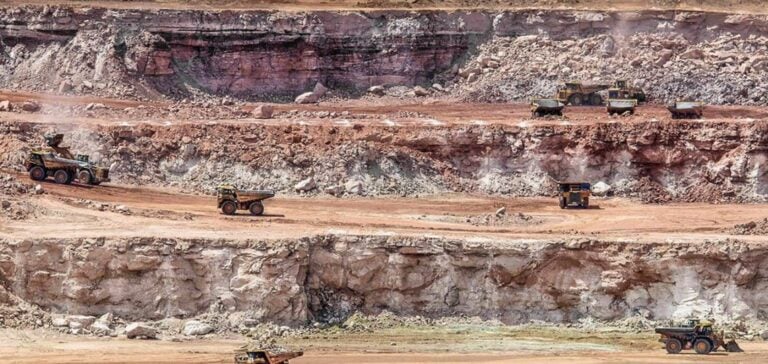Niger, through its state-owned company Sopamin, has officially expressed dissatisfaction with Orano’s decision to suspend uranium extraction activities in the country. The French group, which holds a 63.4% majority stake in Somaïr, announced the suspension of its uranium production as of October 31, citing increasing financial constraints.
Sopamin, a minority shareholder in Somaïr, denounces a lack of consultation and a breach of governance and transparency principles. In a document dated October 31, the Nigerien company highlights that this suspension, unilaterally decided by Orano, breaks expected best practices among industrial partners.
Reasons for Orano’s suspension
Orano justifies this decision with several factors, including the withdrawal of a mining permit for the Imouraren site—one of the world’s largest uranium deposits—by the junta in June. Additionally, the closure of the Niger-Benin border complicates the export of extracted uranium, representing a major obstacle to the financial viability of the French group’s activities in the country.
In response to the constraints imposed by the Nigerien authorities, Orano proposed transporting extracted uranium to France or Namibia as potential markets. However, according to the group, this alternative received no response from the authorities in Niamey, which accelerated the decision to suspend Somaïr’s operations.
Measures taken by the Nigerien junta to maintain activity
To counter Orano’s shutdown, Niger announced its intention to purchase 210 tons of uranium through Sopamin to support Somaïr’s operations. The Nigerien government claims this is a temporary measure to ensure uranium production continues in the country, despite export blockages caused by the suspension. In fact, 1,050 tons of uranium—around half of Somaïr’s average annual output—are currently stockpiled and estimated at a market value of 300 million euros.
A context of tension and diversification of partners
Since the July 2023 coup, the Nigerien military government has repeatedly expressed a desire to review foreign companies’ terms for exploiting natural resources. This approach aligns with a goal of increasing national benefits from the country’s natural wealth, particularly in the strategic uranium sector, where Niger is one of the largest global producers.
In September, Niger took a further step toward independence by approving the creation of the “Timersoi National Uranium Company” (TNUC), a new state-owned company dedicated to uranium exploitation. This move reflects an ambition to strengthen state control over natural resources and may signal a strategic shift in the nuclear energy sector.
The historical role of Orano in Niger’s uranium industry
Present in Niger since 1971, Orano is a historical player in uranium extraction in the country. The French group ceased operations at the Akokan Mining Company (Cominak) in 2021, leaving Somaïr as the last active site. The relationship between Orano and Niger remains marked by decades of cooperation but also by recurring tensions regarding the distribution of profits from natural resources.
For Orano, the current situation raises strategic and economic questions about its future involvement in Niger. Export blockages and political instability may lead the group to reconsider its position in the region, as the Nigerien junta explores new partnerships with other powers, including Russia and Iran.






















